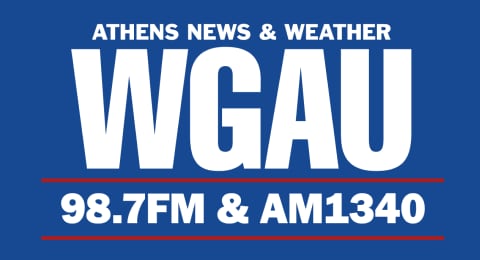WASHINGTON — (AP) — A new book's assertion that former President Donald Trump may have had as many as seven private phone calls with Russian President Vladimir Putin since leaving the White House has refocused attention on their politically fraught relationship and on Trump's sustained dialogue with world leaders as he seeks a return to power.
It's not surprising in and of itself that an ex-president would preserve ties with foreign counterparts. But the detail in journalist Bob Woodward's book "War" raised eyebrows in light of a special counsel investigation during Trump's presidency that examined potential ties between Russia and the Republican's 2016 campaign as well as Trump's more recent criticism of U.S. aid to Ukraine as it fends off Russia's invasion — statements that have hinted at a possible U.S. policy overhaul if he's elected.
“I would caution any world leader about trusting Vladimir Putin with anything,” said Emily Harding, who led the Senate Intelligence Committee's investigation into 2016 Russian election interference and is now a national security expert at the Center for Strategic and International Studies.
Both Trump campaign and the Kremlin, which U.S. officials have said is working to influence the 2024 election in favor of Trump, denied the reporting.
Asked at a press briefing Wednesday, White House press secretary Karine Jean-Pierre said the administration would have “serious concerns” if the reported calls were true.
“We’re not aware of those calls. I certainly can’t confirm any of those calls from here,” she said. “But, if it is indeed true, are we (concerned)? Do we have serious concerns? Yes.”
It's no secret that Trump has held multiple meetings over the last year with major world leaders: hosting Hungary's nationalist prime minister, Viktor Orban, and Israeli Prime Minister Benjamin Netanyahu, sitting down in New York last April with Polish President Andrzej Duda and meeting Volodymyr Zelenskyy during the Ukrainian president's trip to the U.S. last month.
The meetings offer Trump an opportunity to differentiate his foreign policy approach from that of President Joe Biden and Vice President Kamala Harris, the Democratic presidential nominee, and to shore up connections if he reclaims the White House. During Netanyahu's visit in July, Trump boasted of a "great relationship," drawing a tacit contrast with the more strained dynamic between the Israeli leader and Biden.
While those meetings were known publicly, Woodward's book cites an unnamed aide as saying Trump and Putin had as many as seven private calls. That adds to long-running questions about their relationship and what Trump may be trying to achieve, said Robert Orttung, a professor of international affairs at George Washington University.
As president, “We never really understood why he liked Putin so much and why he was trying to develop such a close relationship with someone who is clearly an adversary and against everything the United States stands for,” Orttung said.
Some claims about ties between Trump and allies and Russia have proved overheated or fizzled over time, but the subject continues to draw considerable public scrutiny, including after Trump left office.
The FBI and special counsel Robert Mueller spent several years investigating whether Russia had colluded with the 2016 Trump campaign to tip the outcome of the election. Though investigators did not establish a criminal conspiracy, they did find the Trump campaign actively welcomed Russia's help during the election and that the Russian government perceived it would benefit from a Trump presidency.
In 2018, after meeting Putin in Helsinki, Trump memorably and publicly questioned his own intelligence agencies ' conclusion that Russia meddled in the election.
“I have great confidence in my intelligence people, but I will tell you that President Putin was extremely strong and powerful in his denial today,” Trump said at the time. He added: “He just said it’s not Russia. I will say this: I don’t see any reason why it would be.”
More recently, Trump called Putin “pretty smart” for invading Ukraine and has praised Russia's military record in historical conflicts, saying last month: "As somebody told me the other day, they beat Hitler, they beat Napoleon. That’s what they do. They fight. And it’s not pleasant.”
The book, which also says Trump secretly sent Putin COVID-19 test machines during the height of the pandemic, does not describe the content of their conversations.
Trump campaign spokesman Steven Cheung denied they occurred, calling the book by the famed Watergate journalist the “work of a truly demented and deranged man who suffers from a debilitating case of Trump Derangement Syndrome.” Trump complained at a campaign event on Wednesday that “I had to go through years of Russia, Russia, Russia, and they knew it was fake.”
A Kremlin spokesman also denied the calls happened.
The book's details revived discussion about the Logan Act, a 1799 statute that bars private American citizens from trying to intervene in “disputes or controversies” between the United States and foreign powers without government approval.
The statute has produced just two criminal cases, none since the 1850s and neither resulting in a criminal conviction. Former presidents from Richard Nixon to Jimmy Carter to Bill Clinton have held talks with international figures after leaving the White House.
“Trump could be technically liable just as I think dozens of prominent figures have been technically liable,” said Daniel Rice, a University of Arkansas law professor and constitutional law expert.
Among the possible reasons for the law's dormancy, Rice said, is a disinclination by prosecutors to “turn violators into martyrs" or to be seen as targeting a sitting president's political adversaries.
Trump himself was briefed by then-White House counsel Don McGahn about the Logan Act following a well-publicized episode involving his first national security adviser. In a phone call during the presidential transition period in 2016, Michael Flynn urged Russia's ambassador to the U.S. to be "even-keeled" in response to Obama administration penalties imposed for election interference and assured him that "we can have a better conversation" after Trump became president.
Flynn was interviewed by the FBI about that conversation and pleaded guilty to lying to agents about it, though Trump pardoned Flynn in the final weeks of his presidency.
Trump later called for former Secretary of State John Kerry to be prosecuted for violating the Logan Act over his conversations with Iran after he left the Obama administration. Kerry was never charged.
___
Associated Press writer Will Weissert in Washington contributed.
Copyright 2024 The Associated Press. All rights reserved. This material may not be published, broadcast, rewritten or redistributed without permission.

:quality(70)/cloudfront-us-east-1.images.arcpublishing.com/cmg/WVZ6MS7OLORF3T3SIC3GEOMPXM.jpg)
:quality(70)/cloudfront-us-east-1.images.arcpublishing.com/cmg/XGDFDHGENJG5HLIZP3Z6CGOOTM.jpg)
:quality(70)/cloudfront-us-east-1.images.arcpublishing.com/cmg/GEYACLVFWZHQFOM7CGSUE4X3KU.jpg)
:quality(70)/cloudfront-us-east-1.images.arcpublishing.com/cmg/5JGE3K6IGZCYHJRTZZWIHLDXXI.jpg)
:quality(70)/cloudfront-us-east-1.images.arcpublishing.com/cmg/4MI3U2PPVJHV7J2Y4T7AJO2OW4.jpeg)
